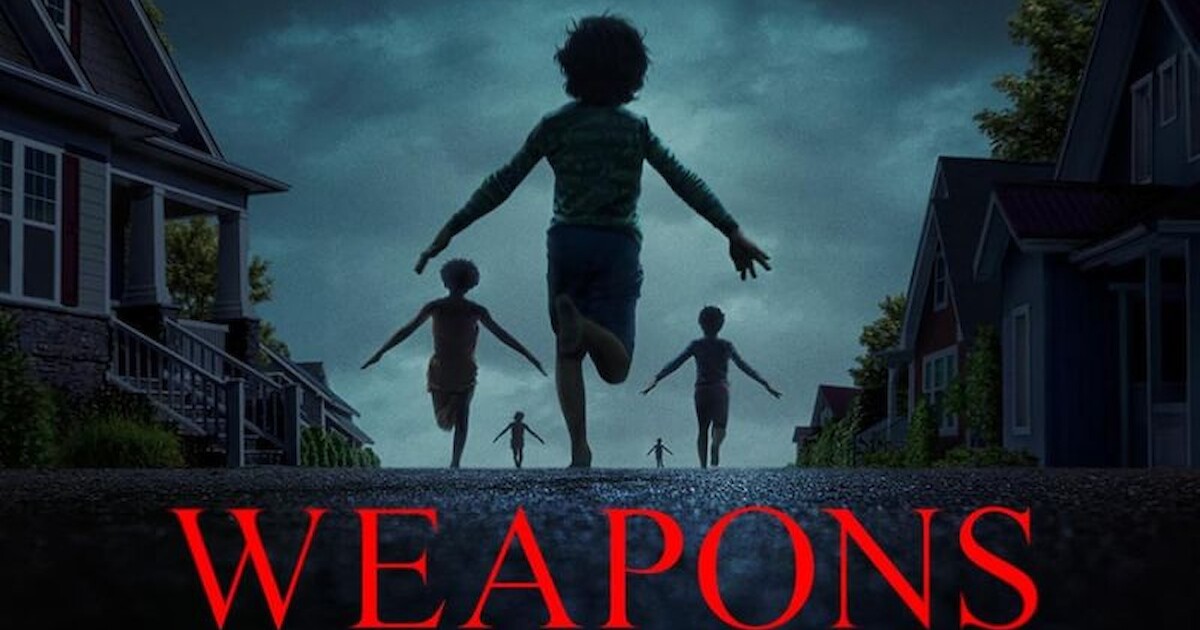Weapons, created and directed by Zach Cregger (Barbarian, 2022) was released in Australian cinemas in August of this year and has generated a lot of divisive opinions. Its disjointed storytelling techniques and intertwined perspective-switching delighted some viewers and baffled others. The horror film explores the story of a small town in which all but one member of an elementary school class goes missing in the night – we then follow different characters in the aftermath of this event, slowly unfolding the story of what happened.
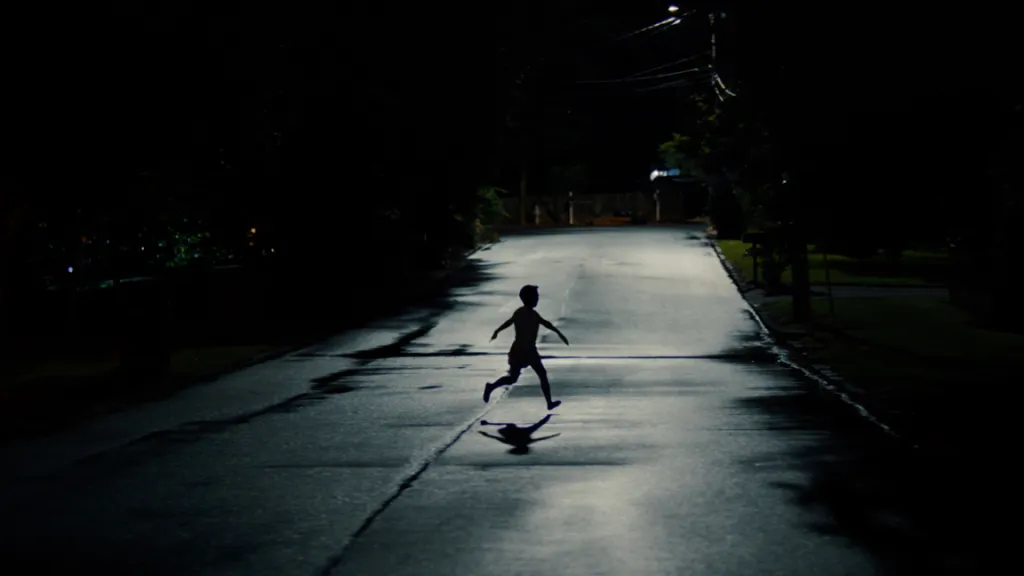
The film is divided into 6 parts, each following a new character and revealing a different aspect of the story – the last two parts being the tipping point of the movie where the main villain of the story, Gladys (Amy Madigan), is introduced, and we finally learn what happened to the missing children. Although there were quite a few sneak peaks of Gladys within the first few parts, it was only when she was properly introduced that the pieces of the puzzle really came together. From her kooky and eccentric look to her terrifying allusive powers, her character, along with Madigan’s performance is what sold this movie to me – it was so unexpected but also fit right into the story.
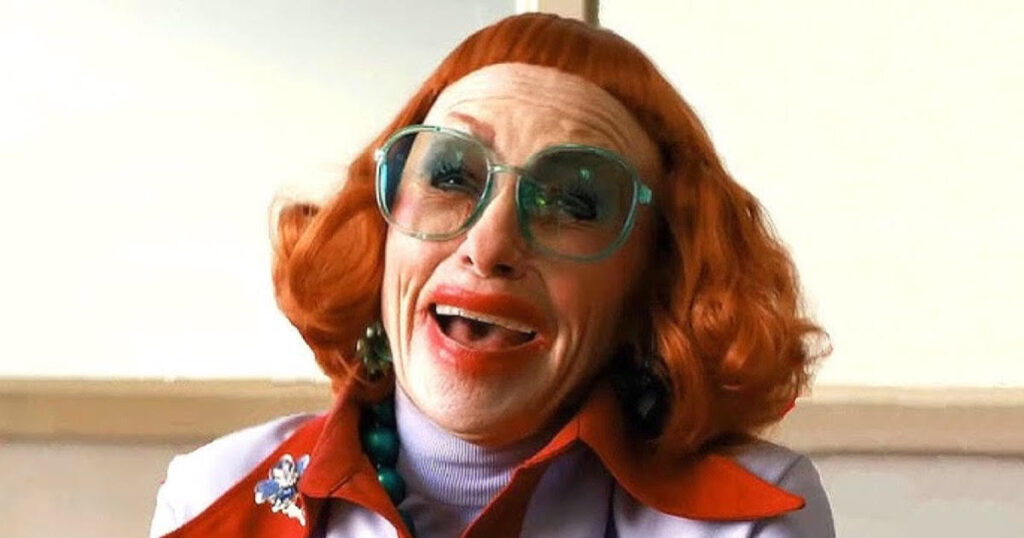
Barbarian, a film created by Cregger in 2022 shares a similar structure to Weapons in which different perspectives are played out to reveal the dark and sinister storyline within. Barbarian’s main monster is properly introduced quite a ways into the film, like Weapons – this approach is effective in building suspense and intrigue, however, I believe it works better in Weapons than the earlier, more controversial film as the storyline is stronger.
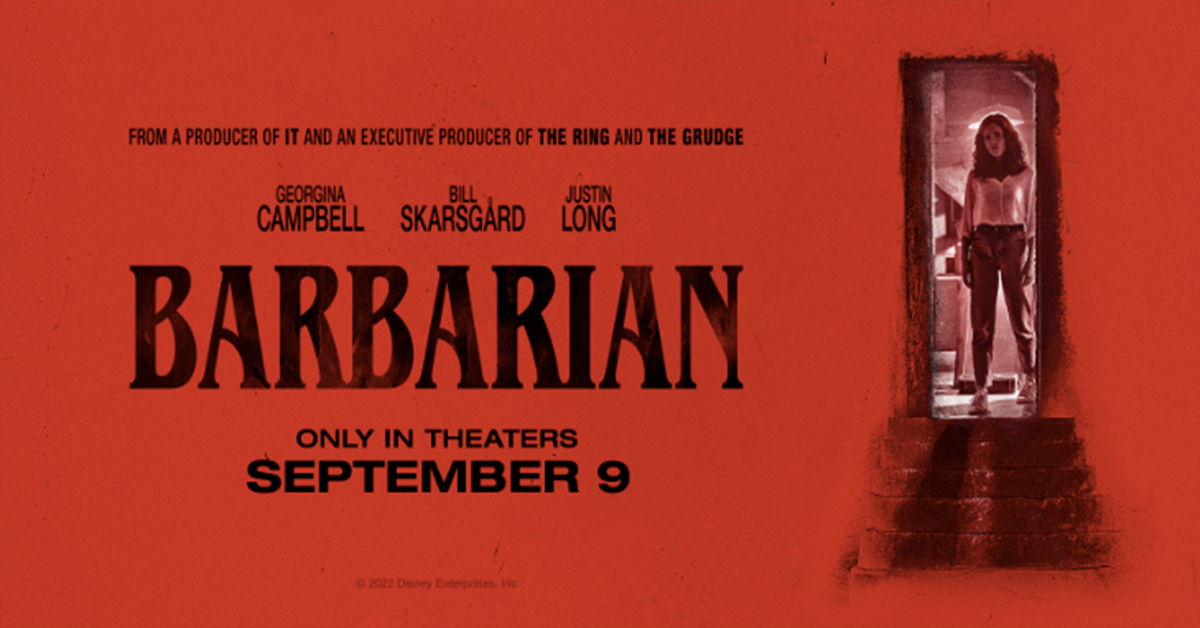
A review from The Guardian, while complimenting aspects of Cregger’s storytelling, found that the movie was ‘missing something’ and fell flat as a whole – referencing the town’s incompetent police and ignorant population as the unrealistic reason that the story came together.
I think this movie asks us to suspend our disbelief; Glady’s introduction to the film tied in with the opening and ending dream-like narrations from a child gives the film a fairytale-esque feel – the entire concept is reminiscent of the poem The Pied Piper of Hamelin by Robert Browning – except darker and more twisted. In this poem, the children of a town are lured away by the scorned piper, never to be seen again.
I enjoyed Weapon’s emphasis on storytelling rather than shock horror and jump scares – and it made the occasional jump scare pay off a lot more. I found the ending to be silly but suited the tone and feel of the movie – a happyish ending is what typically follows a fairytale.
As with most films, the true meaning is up to the individual’s interpretation. This is frustrating to some; leaving them wondering if the film was actually about anything, or if it effectively demonstrates any message of importance.
Others found their own meaning within the film, drawing comparisons between the missing class and schools that have been victim to shootings and gun violence. The dream sequence in which a giant firearm is floating over a house in the town also contributes to this reading of the movie.
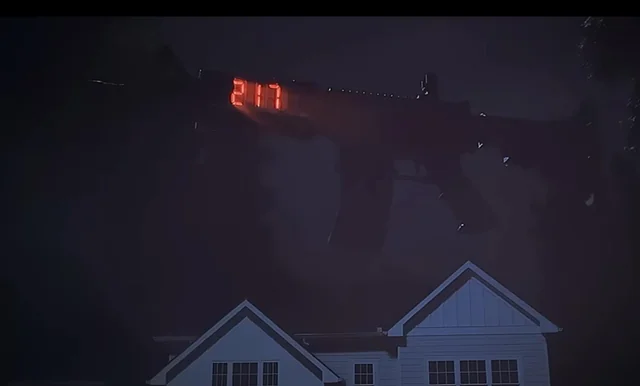
Cregger mentioned in an interview with The Hollywood Reporter that the last part of the film was “autobiographical” and represented living with alcoholic parents “the inversion of the family dynamic that happens” – in the film we see Alex, the sole child left from the missing class taking care of his catatonic parents that are under Gladys’ control.
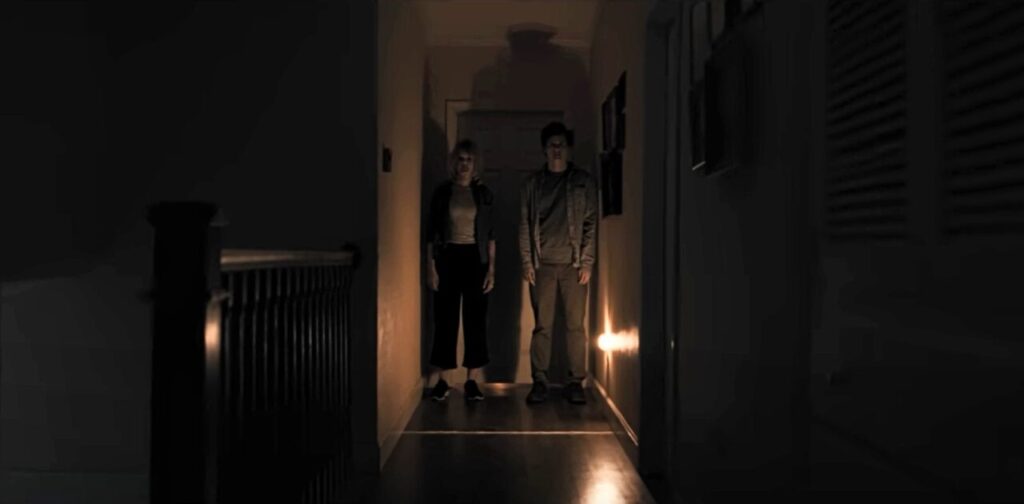
Of course, we can consider what Cregger had in mind when creating Weapons, but even he says himself in an interview with The Hollywood Reporter; “I have nothing to say about it, because the movies should speak for itself, and if I have to comment on what people should get from it, then I’ve failed as a filmmaker.”
The film’s ambiguous ending and scattered themes leave the true meaning of Weapons up for interpretation – although the film came from a personal place, It is ultimately up to the audience to decide what they feel it’s about. Cregger states in an interview with The Playlist “I wasn’t trying to comment on or even tap into collective societal tragedies. I was purely writing from a personal place. However, with art and especially storytelling, the individual is universal.”
I think this perfectly sums up why so many people enjoyed Weapons and why so many people were disappointed by it – some people prefer a concise, neat, tied-up message and some enjoy finding their own meaning within the media they consume. My opinion comes from the latter school of thought, the most enriching, entertaining, and memorable media is the media we can analyse, discuss, and introspect.
